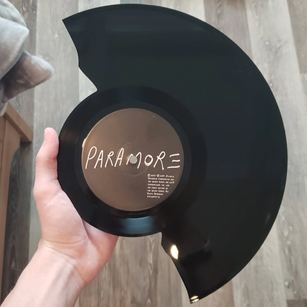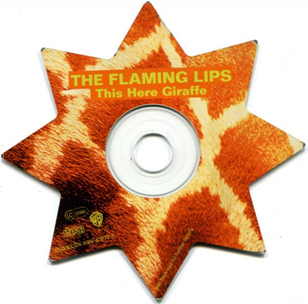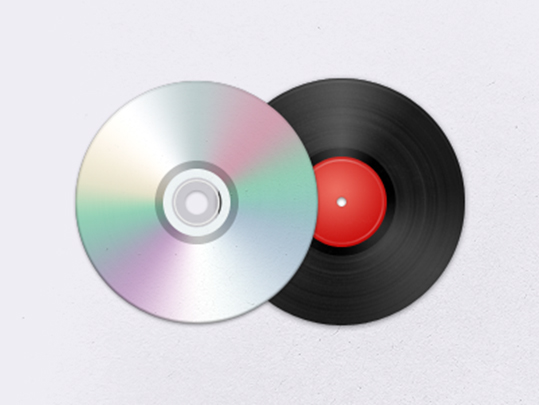If you are making music, which one is better: CD or vinyl?
Since the vinyl record format’s recent comeback, there has been an increasing discourse about what physical audio format is better between vinyl records and compact discs (aka the CD).
There is no such thing as a better format though, because every format has its pros and cons.
Comparing the two audio formats is like comparing the simple ancient times to the more technologically advanced modern times. Both formats have their advantages and disadvantages, which means that they may excel in a certain aspect and not in another.
Sound Quality
There have been many claims that vinyl records sound better than CDs, however there are also claims that both formats’ sound quality do not have much difference from one another. These claims have really caused much confusion and so we have stepped up to give some clarifications.
Indeed, vinyl records give a richer and closer sound to what an artist intends to let their audience hear compared to CDs, as long as the custom vinyl record pressing was done professionally. This may have been due to being an analog format. It’s a format that’s a complete replica of the track’s soundwave, so every bit of information is present during playback.
CD is a digital type of audio format, which means that they contain snippets of the tracks’ sound waves and translate them into numbers. This method causes some music information to be lost, therefore removing some of the nuances that the artists may have included.
The obvious downside with a vinyl record is that it is prone to distortions which forces musicians to rearrange their track lists. Information-heavy tracks should be put first and the mellower ones at the latter part of each record side.
With CDs, there’s no need to worry about distortion. You can have your tracks arranged however you want them to be arranged. Moreover, unlike vinyl records, CDs can support very loud music and high sibilance. There will be no need to “de-ess” or quiet down your tracks. De-essing is the process of attenuating or reducing sibilance, or harsh high-frequency sounds that come from dialogue or vocals using the letters S, F, X, SH, and soft Cs. It’s often a necessary process when mixing audio, but it’s rarely easy—especially when you’re just getting started.
Durability
CDs are obviously more durable than vinyl records. Vinyl records’ grooves need physical contact with the stylus of a turntable for the information to be read. With CDs though, they don’t need physical contact because the laser of a CD player can already read the info just by scanning the surface of the disc.
Repeated playing of a vinyl record will cause degradation to the grooves, causing the vinyl record to lose the high quality sound it produces. CDs, on the other hand, don’t degrade through repeated playing since there’s no physical contact happening.
Since vinyl records need physical contact during playback, this means that any external factor can damage them and affect their sound quality. Vinyl records are also susceptible to heat that can cause warping and deformations on the record.
Humidity is also something to watch out for, because it affects them too. The more humid the storage place is, the more positive the charge of the format becomes. This attracts dust and paper which can affect the sound produced.
Scratches can also obviously cause a degradation in the sound of a vinyl record. Fortunately for CDs, their sound is only affected by scratches and extreme conditions.
Visual Appeal

 Both formats’ packaging can be printed with anything an artist wants on them. Moreover, the records and discs surface can also be printed with any artwork they want printed. They can even be cut into any shape the artist wants like the Flaming Lips’ “This Here Giraffe” CD and Paramore’s “Ain’t It Fun” record single.
Both formats’ packaging can be printed with anything an artist wants on them. Moreover, the records and discs surface can also be printed with any artwork they want printed. They can even be cut into any shape the artist wants like the Flaming Lips’ “This Here Giraffe” CD and Paramore’s “Ain’t It Fun” record single.
Vinyl records kick it up a notch though, because there are more ways musicians can design their custom vinyl records. Unlike CDs, vinyl can be designed with liquid and other colors inside it. It can also be improved by features like glow-in-the-dark or multicolored.
Additionally, vinyl record jackets and sleeves are 10 times larger than CD jewel cases or cardboard jackets. The bigger the space for the artwork, the better. It’s because it will be 10 times more attractive on a bigger packaging than on a smaller one.
Capacity
Vinyl records, though bigger in size than compact discs, actually have smaller capacity than CDs. A standard 4.7” compact disc can hold as long as eighty minutes of audio. Vinyl records, however, can only hold 45 minutes at maximum for a standard 12 inch size.
What’s more is that the 45-minute capacity is just a theoretical max capacity and should not be reached or achieved. Moreover, the maximum capacity of a vinyl record depends on its size and revolutions per minute (rpm).
Price
Vinyl records are obviously pricier than CDs since they are harder to produce. In addition, their packaging and the record itself are bigger than compact discs. If you’re planning on releasing your music on vinyl, be sure to really prepare your budget. Make sure to also have a carefully-prepared number of copies to order so you can easily sell all of them without any unsold copies.
But if you have a tight budget and still want to have your tracks on vinyl records, you can have short-run vinyl pressings or short-run lathe cutting. Short-run vinyl records are very possible now, and it helps that pressing plants are offering them now.
Vinyl records and compact discs are physical formats that many musicians are releasing and many people are buying. There’s no format that is better and superior than the other: it all depends on your and your fans’ taste and preferences.
Both physical formats are great for delivering your music so it can really be hard to choose from either of the two.
But there’s one thing you have to keep in mind: No matter what format you end up choosing to release in, you will definitely need to find a reliable manufacturer, like Unified Manufacturing custom vinyl records, to press your vinyl records or replicate/duplicate your CDs.
Choosing a good manufacturer will surely ease your mind from the manufacturing part of your physical album. You won’t have to worry if your custom vinyl record pressing or your CD replication/duplication is going well or not.
Here’s a not-so-crazy suggestion whether you’re a musician or a music aficionado: try both!





